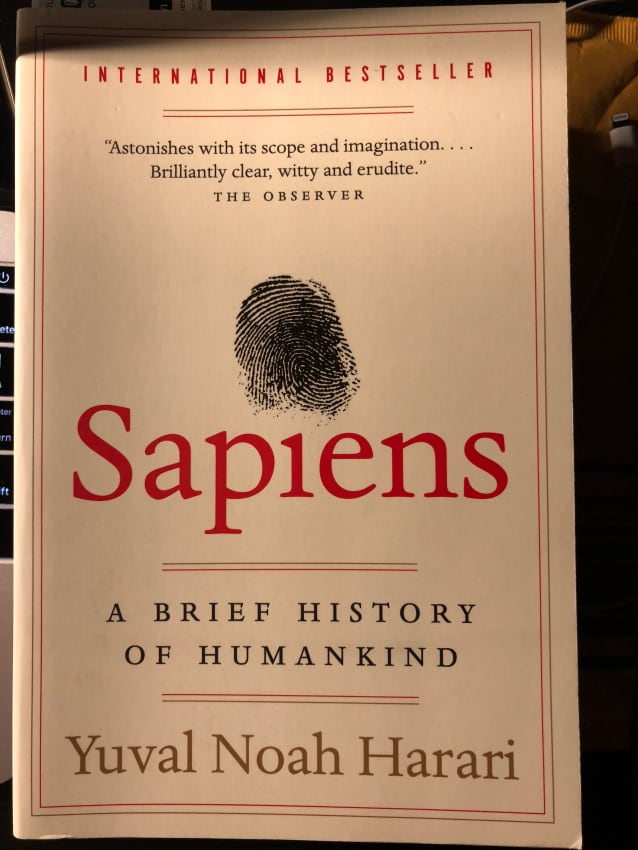
Have you ever read a book and it ends up giving you more than you thought it would? Sapiens became more than just an additional reading for my Biology class.
Writer Yuval Noah Harari is an Israeli historian and currently a lecturer in the Department of History at the Hebrew University of Jerusalem. In 2002, Harari obtained his Ph.D. from the University of Oxford. His specializations include world history, medieval history, and military history.
Harari provides an account of our history with his masterful storytelling. The book is divided into four parts: The Cognitive Revolution,The Agricultural Revolution, The Unification of the Human Mind, and The Scientific Revolution. Upon reading the first few pages, readers will find themselves to be immediately hooked.
His way of writing invites the readers to keep reading more. Surprisingly, Harari is witty in a way that does not divert attention to the purpose of the reading. “Why are giant brains so rare in the animal kingdom? The fact is that a jumbo brain is a jumbo drain in the body.”
Another interesting thing that made me enjoy this book was that the majority of the content was briefly covered in most of my first-year classes. This definitely kept me engaged throughout the book and gained a deeper appreciation for my course content.
Chapter 19, “And They Lived Happily Ever After”, was by far the most impactful and memorable chapter for me. It explores the transformation of social order during the Industrial Revolution and how that basically gave us superhuman abilities and limitless energy.
The book questions if we are happier after going through numerous revolutions and amassing wealth in the previous five centuries. It presents a few hypotheses that critiques the notion that “particular ideologies and political programmes are based on rather flimsy ideas concerning the real source of human happiness.”
The book makes you question things such as: What is the relationship between history and biology? What is the essential difference between the Homo sapiens and other animals? Is there justice in history? Does history have a direction? Did people become happier as history unfolded? What ethical questions do science and technology raise in the 21st century?
Broad as they may be, these questions allow for exploration beyond the surface. The surface being what we are presented as conventional knowledge, when in reality, there might be further inquiries necessary in order to arrive at the ultimate truth. And perhaps, we may never find an ultimate truth. However, the opportunity for conversations to arise based on these questions is quite possibly the most important outcome from this.
If you are highly interested in history and would like to know more about it, I highly suggest this book for the reasons that it is captivating, informative and stimulating. If you read and end up liking this book, Yuval Hariri has two more published works titled Homo Deusand 21 Lessons for the 21st Century.
Sapiens undertakes a wide range of topics that is sure to appeal to most. The key takeaway is how humans have evolved and how we can use the knowledge that we have acquired through time to our advantage. Our past, present and future holds so much potential, and it is up to us to use it to our advantage.
—
Kristine Jones A. Del Socorro | Culture Editor
Photo: Creative Commons | 宋世怡
Leave a Reply